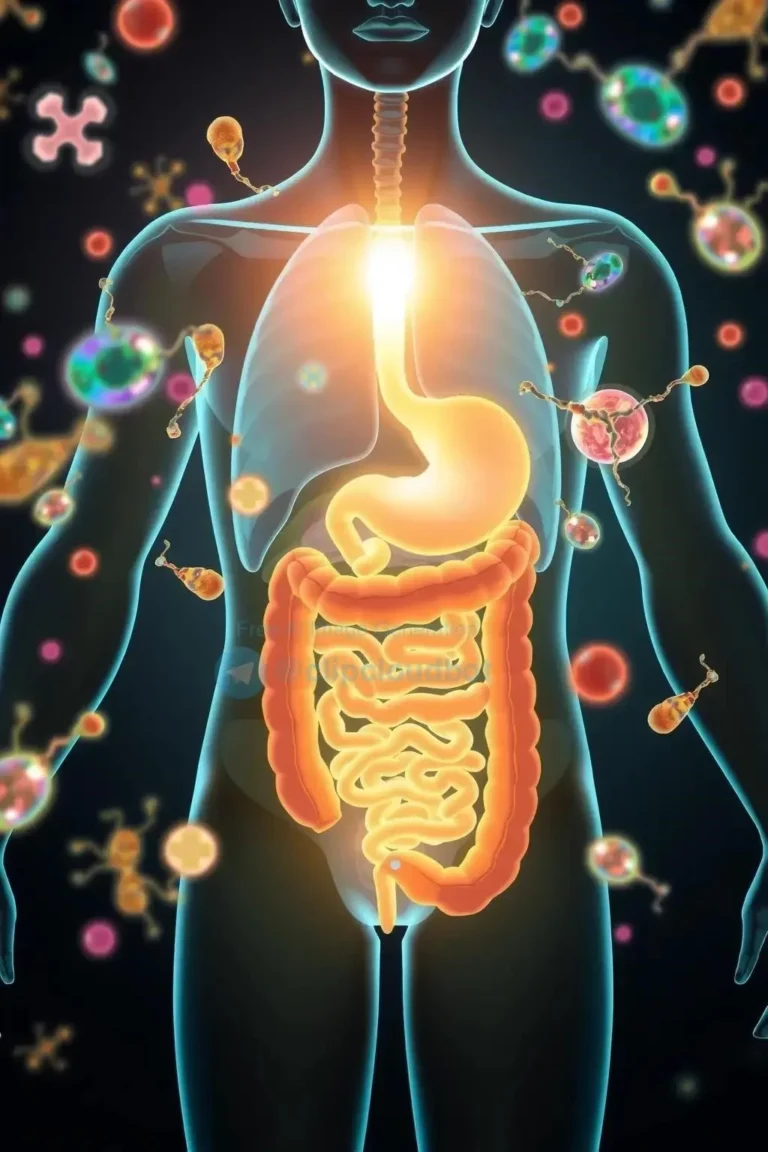Understanding ADHD: Debunking Myths and Addressing Common Questions
What is ADHD?
ADHD, or Attention-Deficit/Hyperactivity Disorder, is a neurodevelopmental condition affecting both children and adults. Characterized by inattention, hyperactivity, and impulsivity, it impacts the brain’s executive functions, making daily tasks challenging. ADHD isn’t simply a lack of focus; it involves difficulty regulating attention, impulses, and activity levels. This can manifest in various ways, impacting academic, social, and professional life.
Common ADHD Misconceptions
Many myths surround ADHD, often fueled by misinformation and a lack of understanding. These misconceptions can stigmatize individuals with ADHD and prevent them from seeking appropriate help. Let’s debunk some of the most prevalent misunderstandings:
- Myth: ADHD is just a childhood disorder. Fact: While often diagnosed in childhood, ADHD frequently persists into adolescence and adulthood. Adults with ADHD may face different challenges than children, such as difficulty managing time, maintaining relationships, and succeeding in their careers.
- Myth: ADHD is a result of bad parenting or laziness. Fact: ADHD is a neurodevelopmental condition with a strong genetic component. It’s not caused by poor parenting, lack of discipline, or a character flaw. It’s a real medical condition affecting brain function.
- Myth: People with ADHD are just not trying hard enough. Fact: Individuals with ADHD often put in significant effort, but their brains process information differently, making it harder to focus, organize, and control impulses. They may require different strategies and support to achieve the same outcomes as neurotypical individuals.
- Myth: Everyone has ADHD sometimes. Fact: While everyone experiences occasional inattention or impulsivity, ADHD involves a persistent and pervasive pattern of these symptoms, significantly impacting daily life functioning across multiple settings, such as home, school, and work.
- Myth: Medication is the only treatment for ADHD. Fact: While medication can be effective for many, a comprehensive approach often yields the best results. This may include behavioral therapy, coaching, lifestyle adjustments, and educational support, tailored to the individual’s specific needs.
- Myth: ADHD is just an excuse for bad behavior. Fact: ADHD is not an excuse, but rather an explanation for certain behaviors. The challenges associated with ADHD are real and can be debilitating. Understanding the underlying neurological basis of ADHD can help foster empathy and support for individuals struggling with this condition.
- Myth: People with ADHD are hyperactive and disruptive all the time. Fact: While some individuals with ADHD present with hyperactivity, others experience primarily inattention, making it less outwardly noticeable. This inattentive type can lead to difficulties with focus, organization, and following through on tasks, without the visible hyperactivity.
By dispelling these misconceptions, we can create a more supportive and understanding environment for individuals with ADHD, allowing them to thrive and reach their full potential.
Most Searched Questions about ADHD
The rising interest in ADHD is reflected in the numerous questions Americans are searching online. These queries reveal a desire to understand the condition, its impact, and available resources. Here are some of the most frequently searched questions regarding ADHD:
- What are the signs of ADHD in adults? Many adults are unaware they have ADHD, as symptoms can manifest differently than in children. Common searches explore signs like difficulty focusing, impulsivity, disorganization, and emotional regulation challenges.
- How is ADHD diagnosed? People want to understand the diagnostic process, which typically involves comprehensive evaluations, including behavioral assessments, questionnaires, and medical history reviews.
- What are the treatment options for ADHD? Searches often focus on various treatments, including medication, therapy (such as cognitive behavioral therapy), and lifestyle changes. People seek information on the effectiveness and potential side effects of different approaches.
- Can ADHD be cured? This common question reflects a hope for a permanent solution. While there’s no cure, effective management strategies can significantly improve symptoms and quality of life.
- How does ADHD affect daily life? Individuals seek information on how ADHD impacts various aspects of life, including work, relationships, and overall well-being. They search for strategies to manage daily challenges.
- What are the best resources for ADHD support? People actively search for reputable organizations, support groups, and online communities that offer information, guidance, and connection with others facing similar challenges.
- Is ADHD a learning disability? While not a learning disability itself, ADHD can significantly impact learning. Searches explore the connection between ADHD and learning challenges, as well as strategies for academic success.
- How can I help my child with ADHD? Parents and caregivers frequently search for effective parenting strategies, educational resources, and support systems to help their children manage ADHD symptoms and thrive.
- What is the difference between ADHD and ADD? This question highlights the evolving understanding of the condition. While ADD (Attention Deficit Disorder) was previously used, the current diagnostic term encompasses both inattentive and hyperactive/impulsive presentations under the umbrella of ADHD.
- Are there natural remedies for ADHD? Many individuals explore alternative treatments, including dietary changes, supplements, and mindfulness practices. It’s crucial to discuss these options with a healthcare professional before implementing them.
These frequently searched questions underscore the growing need for accurate information and resources to support individuals with ADHD and their families. By addressing these queries, we can empower people to seek appropriate help and navigate the challenges of ADHD effectively.
Impact of ADHD on Daily Life in America
ADHD significantly impacts the daily lives of millions of Americans, affecting various aspects of their personal, academic, and professional experiences. Understanding these challenges is crucial for fostering empathy and support.
At Home: ADHD can create difficulties with organization, time management, and following through on tasks. This can lead to cluttered living spaces, missed deadlines, and difficulty maintaining routines. Relationship challenges can also arise due to communication difficulties and impulsive behaviors.
In School/Work: Students with ADHD may struggle with focusing in class, completing assignments, and organizing their studies. In the workplace, difficulties with prioritizing tasks, managing time effectively, and maintaining focus can impact productivity and career advancement. Impulsivity and difficulty regulating emotions can also affect interpersonal relationships with colleagues.
Social Interactions: ADHD can impact social interactions due to challenges with impulsivity, interrupting conversations, and difficulty reading social cues. This can lead to misunderstandings and difficulties forming and maintaining relationships.
Emotional Well-being: Individuals with ADHD often experience higher rates of anxiety, depression, and low self-esteem. The constant struggle to meet expectations and manage daily challenges can take a toll on emotional well-being.
Driving and Safety: Impulsivity and inattention can increase the risk of accidents while driving. Individuals with ADHD may be more prone to distractions and have difficulty following traffic rules.
Financial Management: Difficulties with organization, planning, and impulsivity can lead to challenges with managing finances, budgeting, and paying bills on time.
Sleep Disturbances: ADHD can disrupt sleep patterns, leading to difficulties falling asleep, staying asleep, and experiencing restful sleep. This can further exacerbate ADHD symptoms and impact overall well-being.
Physical Health: While not a direct physical health condition, ADHD can indirectly impact physical health through increased stress, sleep disturbances, and potential for risky behaviors.
Impact on Families: ADHD affects not only the individual but also their families. Parents and siblings may experience stress, frustration, and challenges in navigating the complexities of ADHD. Open communication and support systems are crucial for families dealing with ADHD.
Addressing the multifaceted impact of ADHD on daily life requires a comprehensive approach involving individuals, families, educators, healthcare professionals, and employers working together to create supportive environments that foster success and well-being.
Finding Support and Resources for ADHD
Navigating the challenges of ADHD can feel overwhelming, but numerous resources are available to provide support and guidance. Connecting with these resources can empower individuals, families, and educators to better understand and manage ADHD effectively.
Organizations: Several national organizations offer valuable information, support groups, and advocacy for individuals with ADHD. These include:
- CHADD (Children and Adults with Attention-Deficit/Hyperactivity Disorder): CHADD provides evidence-based information, resources, and support for individuals and families affected by ADHD.
- ADDA (Attention Deficit Disorder Association): ADDA focuses on supporting adults with ADHD, offering resources, webinars, and online communities.
Mental Health Professionals: Seeking professional help is crucial for accurate diagnosis and personalized treatment plans. Mental health professionals specializing in ADHD can provide:
- Psychiatrists: Can diagnose ADHD and prescribe medication if necessary.
- Psychologists/Therapists: Offer therapy, such as cognitive behavioral therapy (CBT) or behavioral therapy, to help individuals develop coping strategies and manage ADHD symptoms.
- ADHD Coaches: Provide support and guidance in areas like time management, organization, and goal setting.
Educational Resources: Numerous online resources and books offer valuable information about ADHD, its impact, and effective strategies for managing symptoms. Reputable websites and publications provide evidence-based information to empower individuals and families.
Support Groups: Connecting with others who understand the challenges of ADHD can provide invaluable support and a sense of community. Support groups offer a safe space to share experiences, learn from others, and gain practical tips for managing ADHD.
School Resources: Students with ADHD can benefit from accommodations and support services provided by schools. Parents and educators can work together to develop individualized education programs (IEPs) or 504 plans to address specific learning needs.
Workplace Accommodations: Adults with ADHD can explore workplace accommodations to help them succeed in their careers. These may include flexible work arrangements, assistive technology, and strategies for managing workload and distractions.
Online Communities: Online forums and social media groups dedicated to ADHD provide a platform for individuals to connect, share experiences, and offer support to one another. These communities can be valuable sources of information and encouragement.
By actively seeking out and utilizing these resources, individuals with ADHD and their families can gain the knowledge, skills, and support they need to navigate the challenges of ADHD and thrive in all aspects of their lives. Remember, seeking help is a sign of strength, and connecting with the right resources can make a profound difference.


